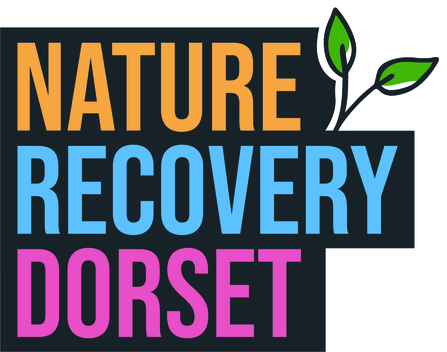
Marbled white butterfly on a common spotted orchid in a wildflower meadow © Tom Marshall
Mapping nature's recovery
The Nature Recovery Dorset network
Dorset Wildlife Trust is working as part of the Nature Recovery Dorset network to restore, enhance and connect spaces for nature, bringing together people and communities to help create a more wildlife-rich county.

The Nature Recovery Dorset network map
We’re asking communities to share their projects, groups and initiatives that are improving spaces for wildlife and join the network so that they can be added to the Dorset Nature Recovery map, hosted by Dorset Council, which will be made live soon. As well as enabling your project to be mapped, by joining the network you’ll be able to share ideas, inspire others and access free resources to support your efforts.
To appear on the map, you just need to let us know what you’re doing to help nature recover and we’ll take care of the rest.
You can submit your community project, group or initiative to be mapped by joining the Nature Recovery Dorset network below and completing a form on the Nature Recovery Dorset website.
We hope to use the map to connect people to your projects and to identify where there are gaps to target our efforts to help Dorset’s wildlife. Together we can create a wilder Dorset.
Join the network and add your group to the map
Why map your group/project?
- To attract new members/volunteers
- To promote the amazing things you are doing and want to do, to raise awareness, and build connections
- To show you’re acting for nature and for your group and project to be seen as part of something bigger
- To share knowledge and resources and provide inspiration to others
What will be mapped?
Whilst we want to celebrate a wide range of projects, submissions will need to be reviewed, and to appear on the map, your group or project’s primary purpose must be in taking action for nature’s recovery in Dorset. This includes:
Community action groups
This category covers a wide range of community activities – from helping to manage nature reserves to undertaking rewilding projects and community tree planting. This category is also for communities that are working towards climate- and wildlife-friendlier greener solutions. Community garden initiatives (e.g. creating wilder streets or neighbourhoods or hedgehog highways), bee-friendly towns and Planet towns all fit into this category (and many more besides).
Wildlife-friendly allotments and food growing
Perhaps you’re a group in the community combining food growing with providing as much habitat for nature as possible, to benefit production, pollination and pest control. If so, we’d love for you to map what you’re up to.
Recording/monitoring groups
Recording groups focus on monitoring and surveying species, habitats and natural features. From bats to badgers, ponds to rivers, coastal hedgerows to strandlines. We’d love to for you to map the actions you’re taking to tell the story of Dorset’s flora, fauna and natural features.
Living Churchyards and Eco Churches
We’re supporting communities to get to know the wildlife in their local churchyards and burial grounds to increase the value of these special places for wildlife. You may already volunteer to make these places of rest and reflection more wildlife friendly, if so, please consider adding your space to the map. We’re also keen to encourage, support and celebrate other faith groups who are carrying out similar activities.
